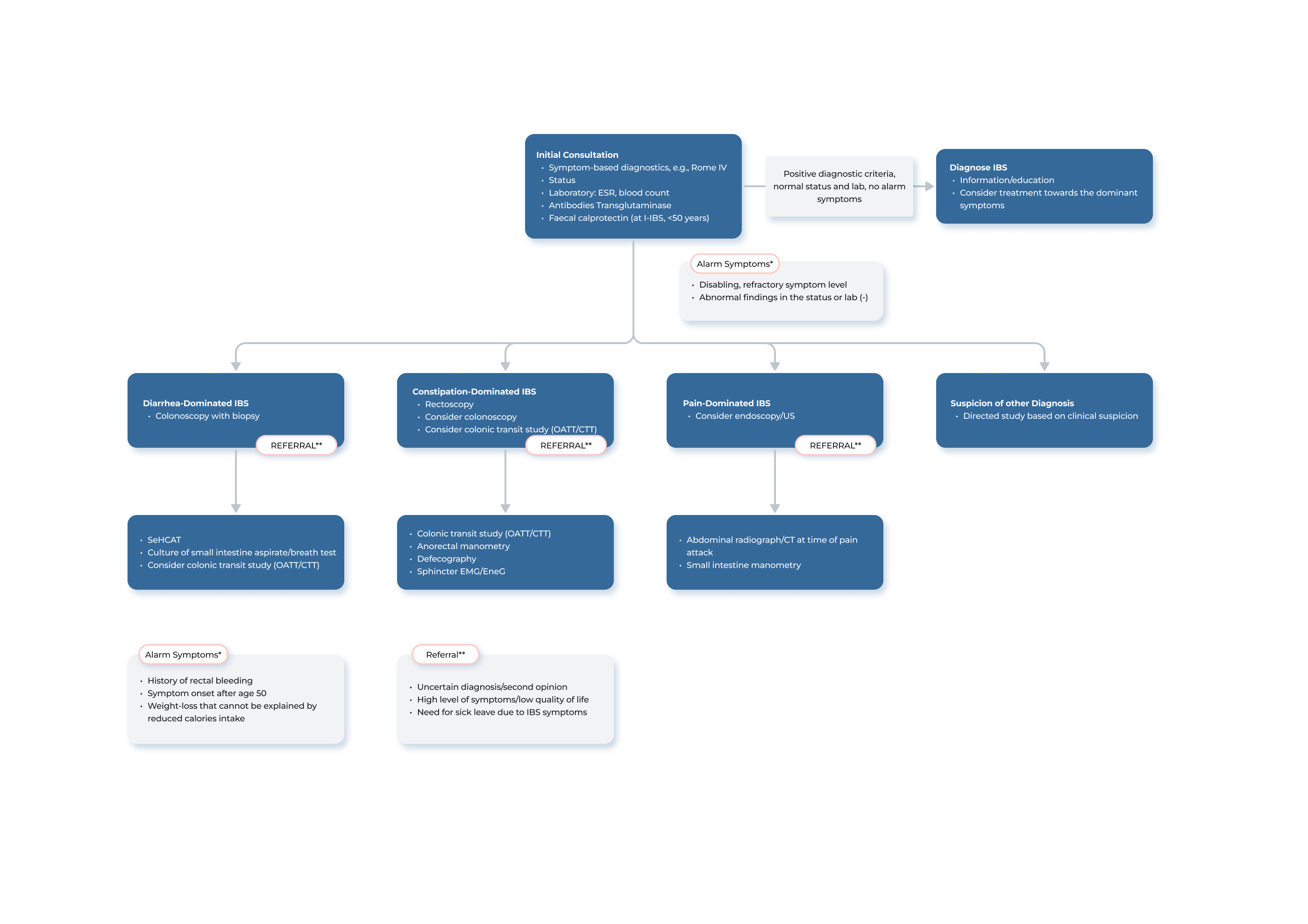What is a Colon Transit Study with Transit-Pellets Capsules?
A colon transit study with Transit-Pellets is frequently utilized in patients suffering from chronic constipation, chronic diarrhea and/or irritable bowel syndrome (IBS). The purpose of this test is to evaluate the transit time and how fast or slow food/stool travels through the intestines.
The test involves the oral consumption of seven capsules over a six-day period, each containing tiny markers that can be visualized using X-ray imaging. By tracking the progress of the markers through the intestines, the physician can quantify the severity of transit problems and the results can be important in determining the need for other examination procedures and selecting the appropriate treatment options.
The Transit-Pellets is highly effective for accurately evaluating gastrointestinal function. The capsules and markers are uniquely packed according to the Transit-Pellets method, a validated single X-ray technique for measuring the entire range of colonic transit time, from fast to slow transit.
Consuming the markers is safe and the markers will be eliminated in the feces and can be safely disposed of by flushing them down the toilet.
When Your Physician May Prescribe a Colonic Transit Study with Transit-Pellets
In general, initial management of constipation often includes making dietary and lifestyle changes, as well as trying over-the-counter laxatives such as bulk-forming agents and non-absorbable carbohydrates. If these methods prove to be ineffective, a colonic transit study using Transit-Pellets capsules may be conducted. Some healthcare providers may also try other treatment options, such as saline laxatives or motility-stimulating drugs, before recommending a colonic transit test.
Brief History
The use of ingested radiopaque markers to assess colon transit has been widely accepted since it was first described by Hinton in 1969. The test is sometimes referred to as the “Hintons Method” or a “Hinton Test”, but it is also known as the Colon Transit-Pellets test, Colonic Transit Markers Study, Radiopaque Markers Test, Radio-Opaque Markers Test, ROM Test, or Bowel Motility Test. Measuring colonic transit time with radiopaque markers is currently considered the most reliable and safe method for evaluating gastrointestinal disorders in both adults and children.
Information on this site should not be used as a substitute for medical advice from your doctor. Always discuss diagnosis and treatment information including risks with your doctor. Keep in mind that all treatment and outcome results are specific to the individual patient. Results may vary.





